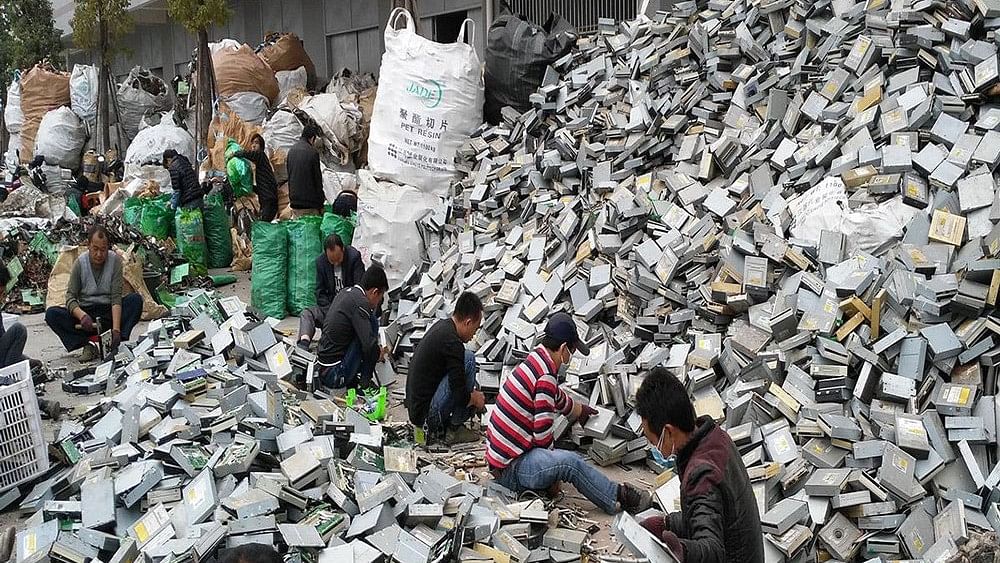
Representative image of hazardous waste.
Credit: PTI Photo
Jaipur: At least 26 per cent households in Jaipur still drain their expired medicines before disposing them as wastes, found a recent study conducted here to assess the state of Domestic Household Waste (DHW) generation and disposal.
The study conducted by Toxic Link, an environmental research and advocacy organisation engaged in campaigns against toxic pollution, in cities Jaipur, Bhopal , Ranchi and Delhi, found severe lack of health and environmental consciousness both among households and waste workers.
It also found that although most people are aware about the hazardous wastes generated in houses but are less concerned and conscious when disposing them off.
A survey was also conducted amongst waste workers in these cities and Coimbatore to understand the handling practices and flow of DHW once they were discarded by households.
The timeline to enforce separate segregation of DHW by waste generators was kept at two years from the notification of the Solid Waste management, 2016 rules, which has long passed but source segregation of solid waste in biodegradable, non-biodegradable and DHW is still distant dream for most cities across the country, barring a few.
Overall, the study found that only 13.6 per cent of households in these cities drained expired or leftover syrups before discarding the bottles while only 5 per cent preferred burning expired medicines, only 2.5 per cent burnt pregnancy and sugar testing strips and 7 per cent burnt disposable PPE kits.
The study found that at least 8 per cent of total households prefer to discard their Household Bio Medical Wastes (HBMW) along with regular household wastes with Delhi at the highest at 13 per cent. In Jaipur, 60 per cent households mixed HBNW with Municipal Solid Waste (MSW).
Of the 12 per cent households found discarding mercury-based thermometers, overall about 53 per cent households still discard their mercury-based thermometers along with regular wastes. In Jaipur, at least 17 per cent households discard mercury containing thermometers. Here majority of households prefer to sell their toxic wastes to kabariwalas.
An alarming fact that emerged was that each city reported injuries of waste workers while handling DHW with the national average being 31 per cent. And at least 38 per cent waste workers were unaware about health impacts of improper handling of DHW while only 10 per cent used PPE kits. In Jaipur, 10.66 per cent workers want DHW to be given to them with separate packing while 10 per cent think it is okay if given with regular waste.
During the release of the report today, Satish Sinha, associate director of Toxic Link, says, : "With rapid urbanisation and lifestyle changes underway in India, domestic hazardous waste poses a significant environmental and public health challenge due to its increasing volume. One of the primary concerns is the informal recycling sector, where a large portion of this waste ends up being processed in unregulated and often unsafe conditions. This not only exposes workers to health risks but also leads to contamination of soil and water in surrounding areas.
Experts also suggested some solutions including bridging regulatory gaps to cover all aspects of DHW management, including collection, transportation, treatment and disposal for proper compliance and also increasing penalties for non compliance with DHW regulations for households, businesses or waste management entities as it is currently insufficient.